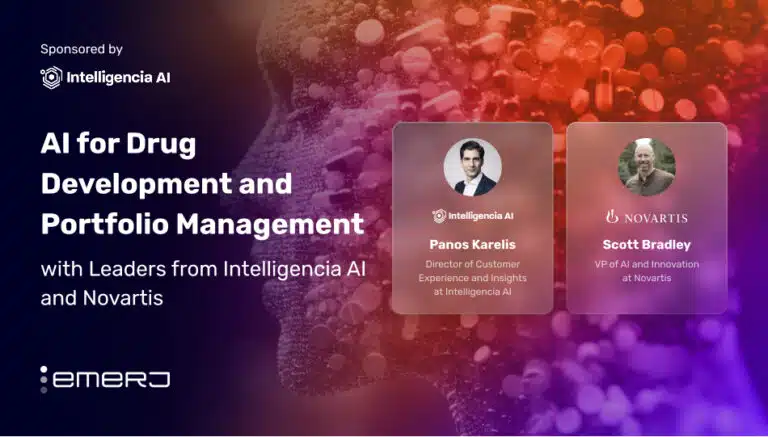Episode Summary: When it comes to finding an expert who knows how to hire machine learning talent, Parshu Kulkarni may just be the guy to ask. Not only is Kulkarni one of a small subsegment of the global population with an advanced degree in data science who has also been hired to work in tech companies like eBay, but he’s been on the unique side hiring of ML and AI talent.
Today, Kulkarni works full-time as Head of Data Science at Hired, Inc., a giant platform for hiring top talent in tech and other areas. In this episode, Kulkarni provides insight into what executives with experience in data science look for in potential hires, alongside what businesspeople get wrong about machine learning. He also gives his insights on the supply-and-demand landscape for data scientists now and in the future. Kulkarni’s is an interesting interview for anyone looking to hire or be hired as a data scientist in the ML and AI space.
Expertise: Engineering complex web scale systems and search engines; machine learning; data mining; algorithmic data retrieval/extraction
Brief Recognition: Before becoming Data Science Leader at Hired.com, Parshu Kulkarni served as Director of Search & Ad Technology at Simply Hired, Search Relevance at eBay, and was a Tech Lead at Yahoo!. He is also Co-Founder of NextLesson. Kulkarni holds a Bachelor of Engineering from Bangalore University and a MS from the Indian Institute of Information Technology.
Current Affiliations: Data Science Leader at Hired.com

Interview Highlights:
The following is a condensed version of the full audio interview, which is available in the above links on Emerj’s SoundCloud and iTunes stations.
(2:23) What have you seen in terms of the supply and demand for AI and ML in the past couple of years?
Parshu Kulkarni: There’s definitely been a pretty marked increase in the market for AI and ML; what happens is a lot of these business are continuously trying to optimize on costs and make their business more efficient, and wherever there are cases where there are decisions that need to be done repetitively, those are perfect examples of things that could be automated using ML or other AI techniques…on the hired platform, we’ve definitely seen more and more companies hiring data scientists…
(4:01) Are you seeing companies increasingly fighting for what’s remaining on the table; are you seeing the supply side for people with these skills increase, and are you seeing more people maybe ‘front’ these skills…in order to be more appealing for jobs?
PK: Data science is one of those areas that’s definitely been more supply-constrained, I’ve seen that myself being on the hiring side of things. Data science and ML are one of those things that you can’t just get out of the text book, and the more you practice the skills the better you get, and part of the reason is because while there has been a lot of progress in terms of the algorithms and the toolsets that you use to come up with solutions, because of the current state of the system, a majority of the effort lies in the data, and you’re solution is only as good as the underlying data.
In order to deal with the data and ensure that you’re collecting the data in an accurate form, you kind of need to be solving real problems; what happens is when you end up doing these (Coursera or similar) courses, you learn a lot about the kind of algorithms you need to use and the kind of tools you need to use to produce the solution, but you don’t actually get the kind of practice in there to actually make that happen. I’m seeing a lot of people who would like to be data scientists, but don’t actually have practical experience solving real problems…
…a lot of companies who are trying to hire data scientists, there’s not enough supply, so in effect it increases the demand on the people who have skill sets but also have the experience, and you see this driving up salaries and competition.
(6:38) If you’re an employer, what are the signals for an applicant that you’re looking for and what are the signals that you’re kind of ignoring?
PK: I can speak as a hiring manager…one of the things that I look for in a data scientist is experience dealing with problems, not just the ability to explain algorithms, but have they demonstrated instances where they have previously used some of these ML and applications?
…Say somebody worked at a search engine company like Google, they might have worked on using ML algorithms for certain applications to improve search elements, so one of the things I tend to look for is instances where the candidate has been able to apply algorithms to solve a critical business problem that resulted in a positive business outcome, that demonstrates not only do they have the technical skills, but they have the business sense to identify the opportunities where the solutions can be applied…
(11:32) You really want to see years in trenches with the right tools more so than just university – am I right to say that maybe you’re weighing that a little bit more?
PK: It depends on the kind of position you’re looking to fill; if you’re looking to fill more of an entry-level position, then universities end up mattering a lot more, I’m talking about trends that we’ve seen on Hired as a platform…if the candidates have a lot less experience, you end up seeing candidates who went to one of the top-tier schools with great machine learning programs end up getting a lot more requests, as opposed to someone trying to hire a lot more experienced people, then things like university or ML program become less relevant and employers tend to be more mindful about what kind of companies they worked for and what kind of scale of solutions they’ve implemented…
(13:40) What do you see as some of the right patterns or some of the best practices that people who are hiring tin this particular space are doing?
PK: This is an area that’s very supply-constrained, so employers have been having to do a lot more to attract the right kinds of candidates, and on the Hired platform we have seen employers who are a lot more proactive reaching out to candidates with up-front information about what kind of problems the candidates are going to be solving once they get on the job; they tend to get a much better response rate compared to people who are reaching out with vanilla job descriptions…
(18:48) What do you see the future looking like for these jobs in terms of the supply side and the demand side and what does that mean for businesses who are going to be hungry for this kind of talent?
PK: I think the demand rates for these types of positions is just going to keep increasing because more and more businesses have been looking to automate a lot of tasks and positions, and whenever this has happened on a large scale ML and AI is kind of the way to go…I also predict that given that this demand is driving up compensation, that we will also see an increase in supply, and we’re already seeing employees with related skills in data or software engineering who are already trying to double up in these kinds of skill sets…

Big Ideas:
1 – Real-world experience is just as important as technical knowledge when applying for data science jobs, especially those beyond entry-level.
2 – The data science market for talented professionals will continue to increase, though Kulkarni predicts that within the next decade, supply for data scientists will catch up with the increase in demand.






















